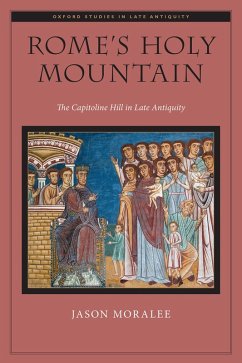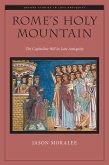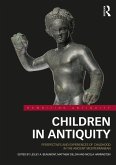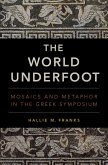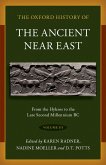Rome's Capitoline Hill was the smallest of the Seven Hills of Rome. Yet in the long history of the Roman state it was the empire's holy mountain. The hill was the setting of many of Rome's most beloved stories, involving Aeneas, Romulus, Tarpeia, and Manlius. It also held significant monuments, including the Temple of Jupiter Optimus Maximus, a location that marked the spot where Jupiter made the hill his earthly home in the age before humanity. This is the first book that follows the history of the Capitoline Hill into late antiquity and the early middle ages, asking what happened to a holy mountain as the empire that deemed it thus became a Christian republic. This is not a history of the hill's tonnage of marble and gold bedecked monuments, but rather an investigation into how the hill was used, imagined, and known from the third to the seventh centuries CE. During this time, the imperial triumph and other processions to the top of the hill were no longer enacted. But the hill persisted as a densely populated urban zone and continued to supply a bridge to fragmented memories of an increasingly remote past through its toponyms. This book is also about a series of Christian engagements with the Capitoline Hill's different registers of memory, the transmission and dissection of anecdotes, and the invention of alternate understandings of the hill's role in Roman history. What lingered long after the state's disintegration in the fifth century were the hill's associations with the raw power of Rome's empire.
Dieser Download kann aus rechtlichen Gründen nur mit Rechnungsadresse in A, B, BG, CY, CZ, D, DK, EW, E, FIN, F, GR, HR, H, IRL, I, LT, L, LR, M, NL, PL, P, R, S, SLO, SK ausgeliefert werden.

